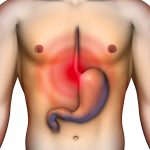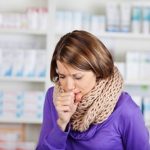Is There a Connection Between COVID-19 and IBD?

COVID-19 is a concern for everyone. But people with inflammatory bowel disease (IBD) may be at increased risk of contracting this virus–or developing a bad case of it. This mostly has to do with medications they may be taking. Ryan Ungaro, MD, Assistant Professor of Gastroenterology at the Susan and Leonard Feinstein Inflammatory Bowel Disease Center, shares information IBD patients need to know about COVID-19.
Is there a connection between COVID-19 and gastrointestinal conditions?
More and more information suggests that the gastrointestinal (GI) system is involved with COVID-19. We are seeing more reports of GI symptoms among COVID-19 patients. For instance, the very first case in the United States noted nausea, vomiting, and diarrhea. In addition, some reports out of China indicate that there are a significant number of COVID-19 patients experiencing GI symptoms. The virus has several ways to get into the human body. This includes the nasal passages, the airway into the lungs, and through the intestines. It may be that contact surfaces in the bathroom could cause transmission. Scientists have found the virus in the stool of some patients.
Are there any special precautious that IBD patients should take?
Any IBD patients who are taking immunosuppressants–drugs that reduce the body’s immune system–should follow the at-risk population guidelines issued by the Centers for Disease Control and Prevention. Take these standard precautions very seriously. Be vigilant with social distancing and limit the number of people you’re in contact with. Be particularly diligent about hand washing and trying not touch your face. Treat yourself as if you’re part of the high-risk population, like the elderly or people with lung disease.
If you are unsure if the medication you take qualifies as an immunosuppressant, check the Crohn’s and Colitis Foundation’s IBD Medication Guide.
If I’m taking any of these medications, should I stop?
In general, you should stay on your medications now. That includes biologic drugs and immunosuppressants. The one exception I would say is steroids. If you are on oral steroids, you should talk to your doctor to see if it’s possible to taper down to a minimum dose or get off them completely. Everyone’s case is individual and if you have any questions, you should raise them with your physician. You want to stay on your medications because the health system is overburdened or is potentially going to become overburdened. You do not want to have a flare-up that requires a trip to the hospital, where there will be increased risk of exposure. If you do need care, we’re trying to do this by telemedicine visits at the IBD Center, except for the most urgent cases.
Is there any research going on about COVID-19 and IBD?
There are several initiatives taking place. The International Organization for Inflammatory Bowel Disease is developing more nuanced guidance for patients and physicians. That should be out shortly. In addition, we, with collaborators at the University of North Carolina, have launched a registry for cases of COVID-19 in IBD patients called SECURE-IBD. The registry will gather information on confirmed cases; medications the patient was receiving; the activity of the disease; and the outcomes, in terms of hospitalizations and disease severity. The goal is to determine which medications may contribute to the risk of developing COVID-19 or having a more severe response to the virus. Gastroenterologists who have patients with COVID-19 are encouraged to report cases directly on the SECURE-IBD website.





